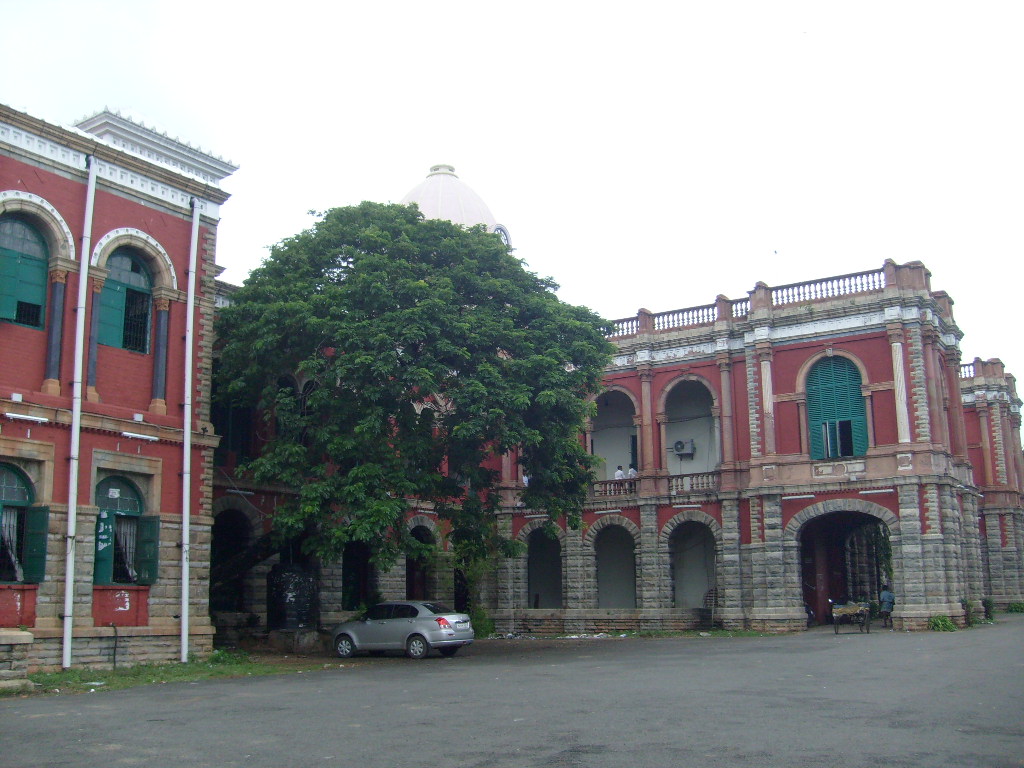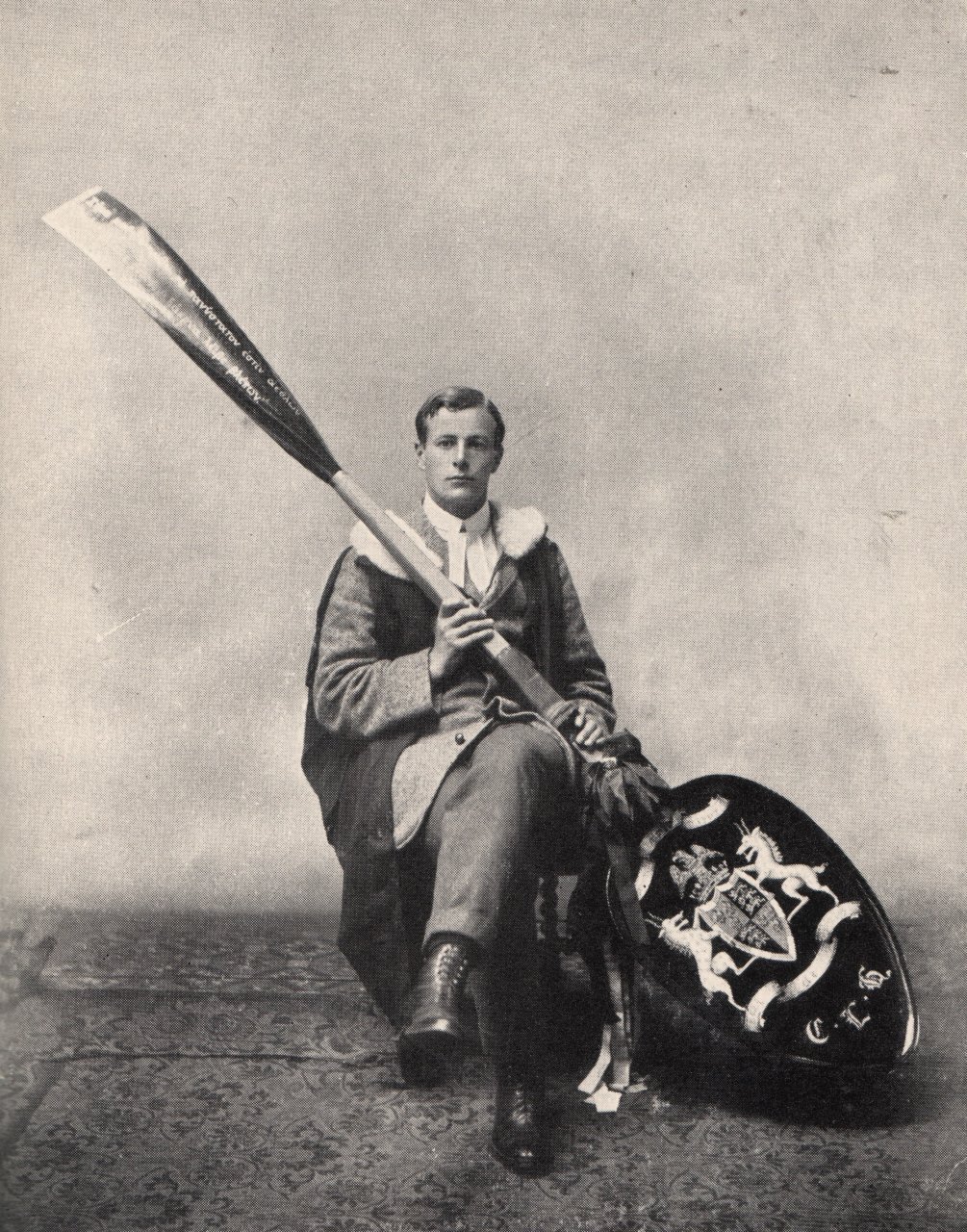|
R. K. Rubugunday
Raghunath Krishna Rubugunday (1918–2000) was an Indian mathematician specializing in number theory notable for his contribution to Waring's problem. Rubugunday was born in Madras in 1918. The famous mathematician K. Ananda Rau was an uncle on his father's side. He completed his B.A. Hons from Presidency College, Madras and Tripos from Cambridge in 1938. He returned to India India, officially the Republic of India, is a country in South Asia. It is the List of countries and dependencies by area, seventh-largest country by area; the List of countries by population (United Nations), most populous country since ... and among other positions he was the Head of the Department of Mathematics at Saugar university. References 1918 births 2000 deaths 20th-century Indian mathematicians Indian number theorists Scientists from Chennai Presidency College, Chennai alumni Alumni of the University of Cambridge {{India-mathematician-stub ... [...More Info...] [...Related Items...] OR: [Wikipedia] [Google] [Baidu] |
Chennai
Chennai, also known as Madras (List of renamed places in India#Tamil Nadu, its official name until 1996), is the capital city, capital and List of cities in Tamil Nadu by population, largest city of Tamil Nadu, the southernmost states and territories of India, state of India. It is located on the Coromandel Coast of the Bay of Bengal. According to the 2011 Census of India, 2011 Indian census, Chennai is the List of most populous cities in India, sixth-most-populous city in India and forms the List of million-plus urban agglomerations in India, fourth-most-populous urban agglomeration. Incorporated in 1688, the Greater Chennai Corporation is the oldest municipal corporation in India and the second oldest in the world after City of London Corporation, London. Historically, the region was part of the Chola dynasty, Chola, Pandya dynasty, Pandya, Pallava dynasty, Pallava and Vijayanagara Empire, Vijayanagara kingdoms during various eras. The coastal land which then contained th ... [...More Info...] [...Related Items...] OR: [Wikipedia] [Google] [Baidu] |
India
India, officially the Republic of India, is a country in South Asia. It is the List of countries and dependencies by area, seventh-largest country by area; the List of countries by population (United Nations), most populous country since 2023; and, since its independence in 1947, the world's most populous democracy. Bounded by the Indian Ocean on the south, the Arabian Sea on the southwest, and the Bay of Bengal on the southeast, it shares land borders with Pakistan to the west; China, Nepal, and Bhutan to the north; and Bangladesh and Myanmar to the east. In the Indian Ocean, India is near Sri Lanka and the Maldives; its Andaman and Nicobar Islands share a maritime border with Thailand, Myanmar, and Indonesia. Modern humans arrived on the Indian subcontinent from Africa no later than 55,000 years ago., "Y-Chromosome and Mt-DNA data support the colonization of South Asia by modern humans originating in Africa. ... Coalescence dates for most non-European populations averag ... [...More Info...] [...Related Items...] OR: [Wikipedia] [Google] [Baidu] |
Mathematics
Mathematics is a field of study that discovers and organizes methods, Mathematical theory, theories and theorems that are developed and Mathematical proof, proved for the needs of empirical sciences and mathematics itself. There are many areas of mathematics, which include number theory (the study of numbers), algebra (the study of formulas and related structures), geometry (the study of shapes and spaces that contain them), Mathematical analysis, analysis (the study of continuous changes), and set theory (presently used as a foundation for all mathematics). Mathematics involves the description and manipulation of mathematical object, abstract objects that consist of either abstraction (mathematics), abstractions from nature orin modern mathematicspurely abstract entities that are stipulated to have certain properties, called axioms. Mathematics uses pure reason to proof (mathematics), prove properties of objects, a ''proof'' consisting of a succession of applications of in ... [...More Info...] [...Related Items...] OR: [Wikipedia] [Google] [Baidu] |
Waring's Problem
In number theory, Waring's problem asks whether each natural number ''k'' has an associated positive integer ''s'' such that every natural number is the sum of at most ''s'' natural numbers raised to the power ''k''. For example, every natural number is the sum of at most 4 squares, 9 cubes, or 19 fourth powers. Waring's problem was proposed in 1770 by Edward Waring, after whom it is named. Its affirmative answer, known as the Hilbert–Waring theorem, was provided by Hilbert in 1909. Waring's problem has its own Mathematics Subject Classification, 11P05, "Waring's problem and variants". Relationship with Lagrange's four-square theorem Long before Waring posed his problem, Diophantus had asked whether every positive integer could be represented as the sum of four perfect squares greater than or equal to zero. This question later became known as Bachet's conjecture, after the 1621 translation of Diophantus by Claude Gaspard Bachet de Méziriac, and it was solved by Joseph-Louis ... [...More Info...] [...Related Items...] OR: [Wikipedia] [Google] [Baidu] |
Mathematician
A mathematician is someone who uses an extensive knowledge of mathematics in their work, typically to solve mathematical problems. Mathematicians are concerned with numbers, data, quantity, mathematical structure, structure, space, Mathematical model, models, and mathematics#Calculus and analysis, change. History One of the earliest known mathematicians was Thales of Miletus (); he has been hailed as the first true mathematician and the first known individual to whom a mathematical discovery has been attributed. He is credited with the first use of deductive reasoning applied to geometry, by deriving four corollaries to Thales's theorem. The number of known mathematicians grew when Pythagoras of Samos () established the Pythagorean school, whose doctrine it was that mathematics ruled the universe and whose motto was "All is number". It was the Pythagoreans who coined the term "mathematics", and with whom the study of mathematics for its own sake begins. The first woman math ... [...More Info...] [...Related Items...] OR: [Wikipedia] [Google] [Baidu] |
Presidency College, Chennai
Presidency College is an art, commerce, and science college in the city of Chennai in Tamil Nadu, India. On 16 October 1840, this school was established as the Madras Preparatory School before being repurposed as a high school, and then a graduate college. The Presidency College is one of the oldest government arts colleges in India. It is one of two Presidency Colleges established by the British in India, the other being the Presidency College, Kolkata. History Sir Thomas Munro asked for a Committee of Public Instruction to form in 1826. In 1836, the committee's duties changed to the "Committee of Native Education". The plans drawn up by the committee did not commend themselves to the Governor of Madras, Lord Elphinstone, who proposed nineteen resolutions that passed unanimously. Elphinstone chose E. B. Powell, a University of Cambridge Wrangler in mathematics, to be the first principal, and Powell accepted the post. He arrived in Mumbai (Bombay) on September 20, 18 ... [...More Info...] [...Related Items...] OR: [Wikipedia] [Google] [Baidu] |
Cambridge Mathematical Tripos
The Mathematical Tripos is the mathematics course that is taught in the Faculty of Mathematics at the University of Cambridge. Origin In its classical nineteenth-century form, the tripos was a distinctive written examination of undergraduate students of the University of Cambridge. Prior to 1824, the Mathematical Tripos was formally known as the "Senate House Examination". From about 1780 to 1909, the "Old Tripos" was distinguished by a number of features, including the publication of an order of merit of successful candidates, and the difficulty of the mathematical problems set for solution. By way of example, in 1854, the Tripos consisted of 16 papers spread over eight days, totaling 44.5 hours. The total number of questions was 211. It was divided into two parts, with Part I (the first three days) covering more elementary topics. The actual marks for the exams were never published, but there is reference to an exam in the 1860s where, out of a total possible mark of 17,000, ... [...More Info...] [...Related Items...] OR: [Wikipedia] [Google] [Baidu] |
University Of Cambridge
The University of Cambridge is a Public university, public collegiate university, collegiate research university in Cambridge, England. Founded in 1209, the University of Cambridge is the List of oldest universities in continuous operation, world's third-oldest university in continuous operation. The university's founding followed the arrival of scholars who left the University of Oxford for Cambridge after a dispute with local townspeople. The two ancient university, ancient English universities, although sometimes described as rivals, share many common features and are often jointly referred to as Oxbridge. In 1231, 22 years after its founding, the university was recognised with a royal charter, granted by Henry III of England, King Henry III. The University of Cambridge includes colleges of the University of Cambridge, 31 semi-autonomous constituent colleges and List of institutions of the University of Cambridge#Schools, Faculties, and Departments, over 150 academic departm ... [...More Info...] [...Related Items...] OR: [Wikipedia] [Google] [Baidu] |
1918 Births
The ceasefire that effectively ended the First World War took place on the eleventh hour of the eleventh day of the eleventh month of this year. Also in this year, the Spanish flu pandemic killed 50–100 million people worldwide. In Russia, this year runs with only 352 days. As the result of Julian to Gregorian calendar switch, 13 days needed to be skipped. Wednesday, January 31 ''(Julian Calendar)'' was immediately followed by Thursday, February 14 ''(Gregorian Calendar)''. Events World War I will be abbreviated as "WWI" January * January – 1918 flu pandemic: The "Spanish flu" ( influenza) is first observed in Haskell County, Kansas. * January 4 – The Finnish Declaration of Independence is recognized by Soviet Russia, Sweden, Germany and France. * January 8 – American president Woodrow Wilson presents the Fourteen Points as a basis for peace negotiations to end the war. * January 9 – Battle of Bear Valley: U.S. troops engage Yaqui Native Ameri ... [...More Info...] [...Related Items...] OR: [Wikipedia] [Google] [Baidu] |
2000 Deaths
This is a list of lists of deaths of notable people, organized by year. New deaths articles are added to their respective month (e.g., Deaths in ) and then linked below. 2025 2024 2023 2022 2021 2020 2019 2018 2017 2016 2015 2014 2013 2012 2011 2010 2009 2008 2007 2006 2005 2004 2003 2002 2001 2000 1999 1998 1997 1996 1995 1994 1993 1992 1991 1990 1989 1988 1987 1986 Earlier years ''Deaths in years earlier than this can usually be found in the main articles of the years.'' See also * Lists of deaths by day * Deaths by year (category) {{DEFAULTSORT:deaths by year ... [...More Info...] [...Related Items...] OR: [Wikipedia] [Google] [Baidu] |
Indian Number Theorists
Indian or Indians may refer to: Associated with India * of or related to India ** Indian people ** Indian diaspora ** Languages of India ** Indian English, a dialect of the English language ** Indian cuisine Associated with indigenous peoples of the Americas * Indigenous peoples of the Americas ** First Nations in Canada ** Native Americans in the United States ** Indigenous peoples of the Caribbean ** Indigenous languages of the Americas Places * Indian, West Virginia, U.S. * The Indians, an archipelago of islets in the British Virgin Islands Arts and entertainment Film * ''Indian'' (film series), a Tamil-language film series ** ''Indian'' (1996 film) * ''Indian'' (2001 film), a Hindi-language film Music * Indians (musician), Danish singer Søren Løkke Juul * "The Indian", an unreleased song by Basshunter * "Indian" (song), by Sturm und Drang, 2007 * "Indians" (song), by Anthrax, 1987 * Indians, a song by Gojira from the 2003 album '' The Link'' Other uses ... [...More Info...] [...Related Items...] OR: [Wikipedia] [Google] [Baidu] |





